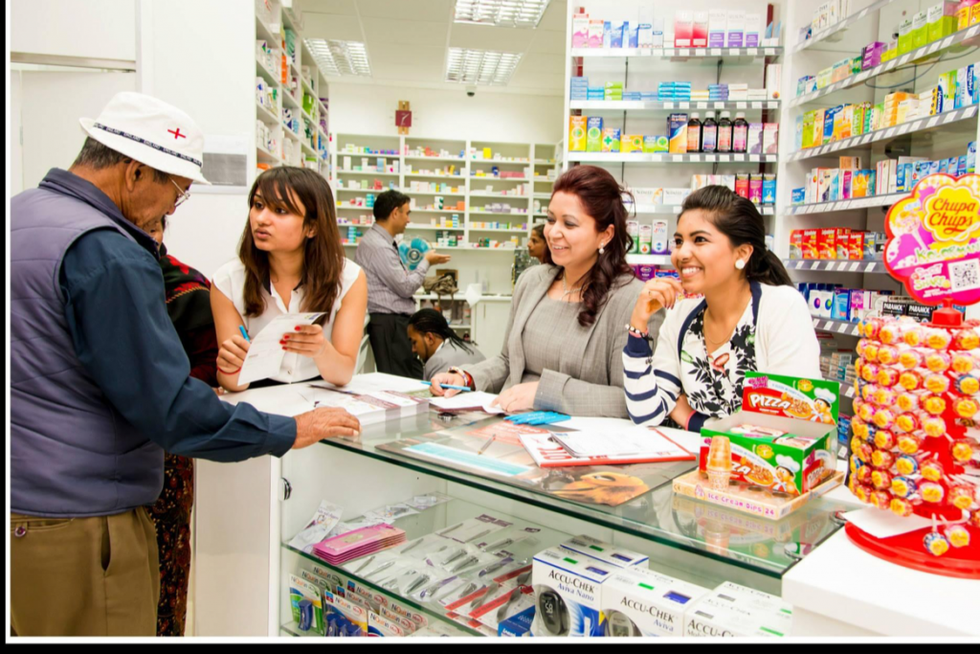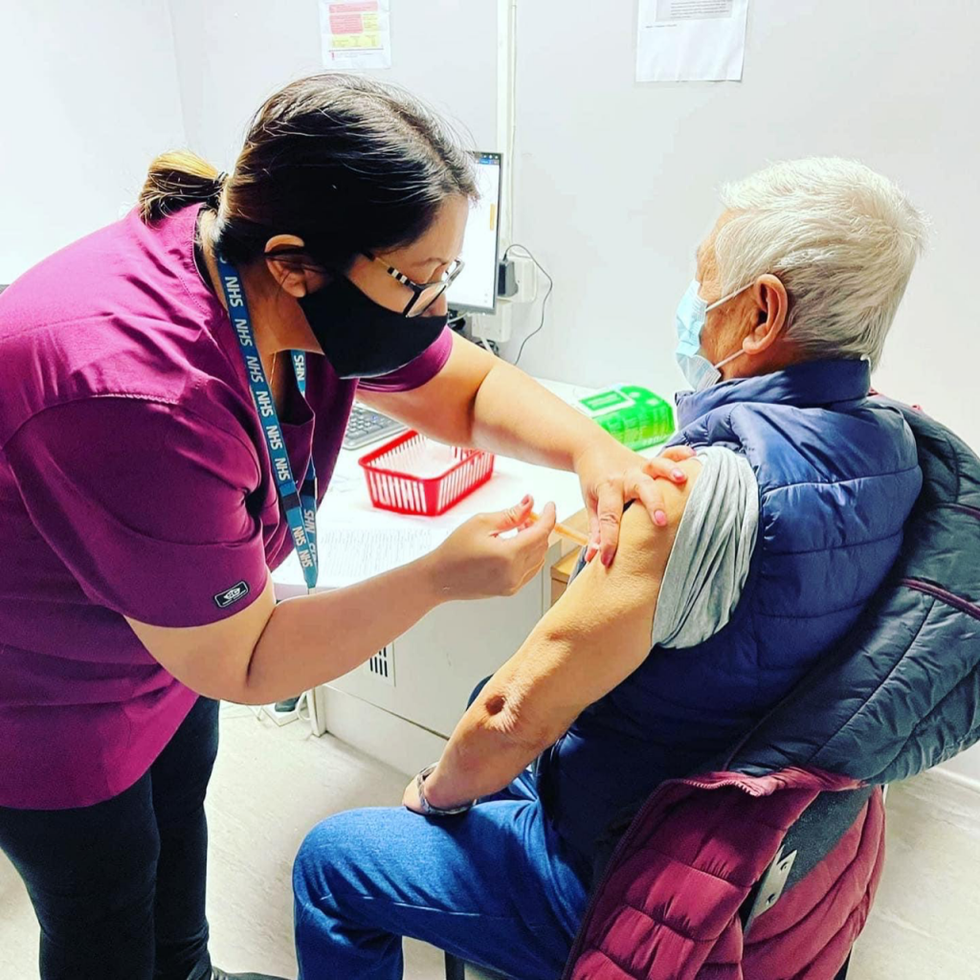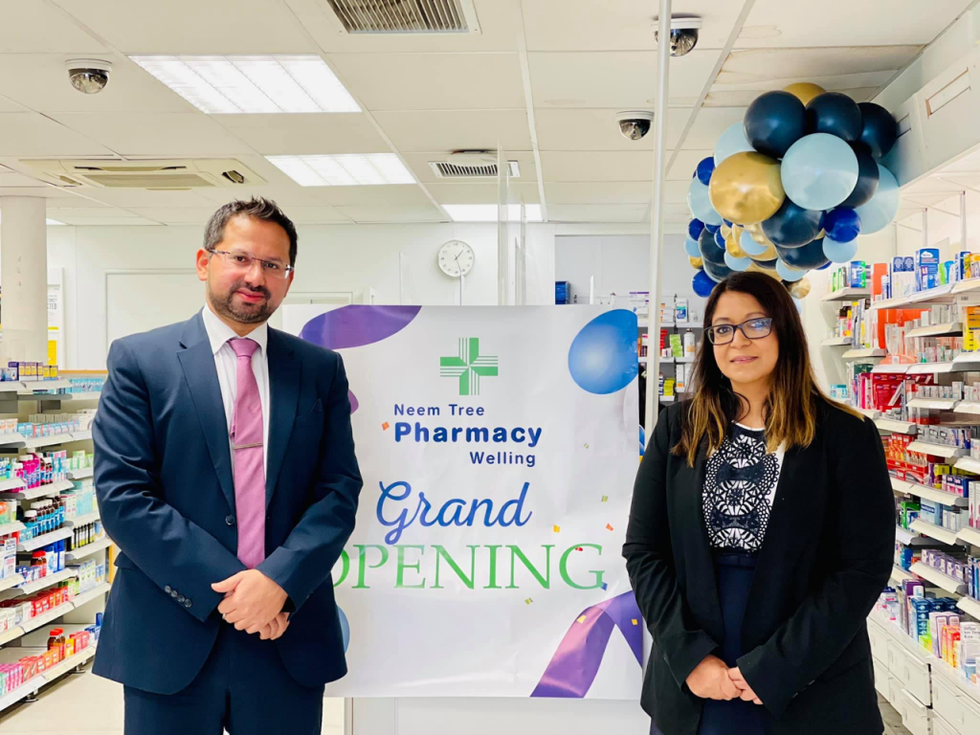As the costs of running community pharmacies keep rising, contractor Sobha Sharma Kandel says the sector cannot survive unless it’s appropriately funded and services like Pharmacy First across England are urgently introduced. She spoke with Priyankur Mandav…
Sobha Sharma Kandel wants community pharmacy teams up and down the country to be super responsive to emerging needs of their patients – by always being pro-active rather than reactive.
“We know that every patient benefits from our proactive approaches – listening, asking questions, providing information and making clinical interventions when appropriate.
“At a time when general practice is overstretched, community pharmacy must be relied upon as the frontline of the NHS when it comes to providing diagnosis, treatment and continuous care in our communities to promote health and wellbeing of our patients.”
Sobha believes Covid-19 has helped shift public perception of community pharmacies from being a place where one goes to collect a prescription to a hub where one can access a range of healthcare advice and services.

“We are way more than just a shop where you can collect your medicines,” she said, giving examples of how her interventions have helped reduce medication errors, prevent harm and subsequently reduce cost of care.
She once saved a baby from getting overdosed with omeprazole when they had issues with gastroesophageal reflux. On another occasion, she managed a lady’s high blood pressure by finding equivalent medications to a combination dose prescribed by her doctor in another country.
“Interventions by pharmacists have always been considered a valuable input by everyone in healthcare. To me, community pharmacy is also about improving patient outcomes and helping counteract the negative impact of the poor and stark economic realities on health.”
Sobha has volunteered for the charity Change, Grow, Live at their clinic to provide health consultations to patients recovering from drug addiction. She has a high number of patients on methadone and buprenorphine in her pharmacies. Therefore this sparked her interest in volunteering at the charity.
“Many individuals who have sadly become victims of drug and alcohol abuse aren’t aware of everything that they are entitled to on the NHS” said Sobha.
“Our pharmacy teams already play a big part in supporting and providing treatment to people who use drugs by offering them harm reduction services and advice thereby reducing health inequalities” she added, stressing how the service has been an important offering across her 100-hour pharmacy in Southeast London.
“Every drug death is, of course, preventable. Community pharmacy has a vital role in improving patient outcomes and helping to counteract the negative impact of poor economic conditions on the health of our communities.
“Due to Covid, health literacy in our societies is on the rise – people are becoming more conscious about protecting their health rather than being ensued by illness.”
She said health literacy must be enhanced in primary care settings – particularly in community pharmacy – “because it is as important for the prevention of communicable diseases as it is for non-communicable diseases.”
Must act now
But Sobha regrets that ministers only “pay lip service and do not deliver” what is the sector’s due, and therefore many pharmacies have had to close primarily because of a decade of flat funding. The impact of funding cuts has now been exacerbated by higher inflation and growing workforce challenges.
“I’ve worked in community pharmacy for nearly 17 years now. But this situation has been unprecedented. My colleagues and support staff have felt immense pressure. Make no mistake, this is a battle and we are in the firing line. At least that’s what it feels like now from where we are standing.
“Independent pharmacies like us are already crippled, yet we are doing such essential and important work. We reduce the workload of our other healthcare colleagues by providing a service in the community.
“It’s a shame that the government does not recognise the contribution of community pharmacy. We are always expected to go above and beyond but with no funding from the government or real recognition for what we do.
“We won’t survive if the government doesn’t take some urgent action and fund the services that we provide for free. We are duty bound as professionals to care for our patients but who will be protecting us?
“I love my profession but feel very dejected. We need some serious action from our professional bodies who represent us. They need to advocate strongly for us at this difficult time. Otherwise, community pharmacy, as we know it, will be extinct in the future. We need to act now and together.”
Pharmacy First
She would like the Department of Health and Social Care to seriously consider rolling out a national programme to make better use of the pharmacists’ clinical skills and expertise and widen the range of services available in community pharmacies, like the Pharmacy First scheme in Scotland, as part of which community pharmacists, without the need for an appointment, provide professional health care advice, treatments, and medicines for common illnesses.
“I was so excited when Sajid Javid (former health secretary) spoke of Pharmacy First for England at the Pharmacy Business Awards earlier this year. That’s what community pharmacy in England will need if it has to survive and then maybe thrive.
“Now that Sajid Javid is gone I would like the incumbent health secretary (Steve Barclay) to make a quick decision on it and roll out Pharmacy First across England. The sector is desperately crying out for an overhaul.”
Being a vaccinator
Sobha’s Woolwich Late Night Pharmacy was the first community pharmacy in Greenwich to become an official NHS Covid-19 vaccine site and one of only 15 pharmacies registered in all of London in January 2021. She felt it was the size and layout of her pharmacy that NHS officials loved: mainly its big hallway and two consultation rooms separate to the main pharmacy.

“We worked tirelessly for months before going live on January 21, preparing for the moment when we could open our doors to our first patients and when the day finally arrived, we were really excited but also very nervous,” Sobha recalled.
“Two of our senior pharmacists, including myself, were appointed as vaccinators and together with a super-efficient admin team and a pool of dedicated volunteers, we managed to run the clinic with utmost efficiency. This included ensuring that patients were socially distanced, comfortable, and fully informed about all the processes and what they should expect next.
“All the hard work we put in paid off, with everything going smoothly from day one. Patients were so happy and grateful to receive their vaccines, and they praised our pharmacy team for their hard work.
“Being a vaccinator is such a rewarding role but also draining. Clinically screening each patient, providing reassurance, answering queries, communicating regarding the vaccine with people who speak different languages or with those with special needs can all be really intense, but I enjoy it.
“I feel proud of my pharmacy team without whom none of this would have been possible. This work has hugely impacted me as a pharmacist – a major milestone in my career. Being on the Covid-19 vaccine frontline and being able to contribute to the health of the nation, is such an honour and I will never forget.”
World of medicine
Sobha pursued pharmacy as a career option pretty much like most others in the profession. She had good grades in secondary school, was passionate about science (particularly chemistry) and always curious about the “wonderful world of medicine”.
What’s unique about her, however, was the clarity of thought from a very young age: white-coated pharmacists always fascinated her. At 16, she started working on Saturdays at a Boots store as a pharmacy assistant.
In her sixth form, she completed her work experience at the Pharmacy department of Hammersmith Hospital in London – an experience that would help to make up her mind: she had the grades to go for medicine, but she chose pharmacy instead. Her father, who worked as a chef, liked that pharmacy would allow Sobha a better work-life balance than being a doctor in a busy hospital or general practice.
Her excellent A-levels meant that she would get an offer from the prestigious School of Pharmacy (now known as the UCL School of Pharmacy) which was her first choice of a higher educational institution.
After graduating in 2004, Sobha did her pre-registration trainee year at Boots and Great Ormond Street Hospital in London.
Her first job after qualifying as a pharmacist was with Boots, and fowling a couple of years as a pharmacists there she decided to start her own business in 2009 – quickly adding three more in the process.

“My husband is an entrepreneur and he encouraged and supported me to get into the independent pharmacy sector,” she said.
Sobha always pushed herself to learn more clinically, she completed her Pharmacist Independent Prescribing qualification with distinction in 2015 and an MSc in Pharmacy Practice with a merit in 2018 from Kings College London. She also worked part-time in general practice as a senior clinical pharmacist for a couple of years as part of the NHS GP clinical pharmacist training programme in the first wave.
Sobha is currently pursuing a PhD at the Medway School of Pharmacy, University of Kent, her research topic is “Optimising patient care by improving understanding amongst Healthcare Professionals of how their patients use herbal medicines.” She has just passed the first year of her PhD with what her research guide called “exemplary progress”.
Asked what gives her the most satisfaction in her profession, she said: “The most satisfying part of my role is making a positive impact on patients’ health and quality of life. My greatest achievement in my pharmacy career is rising to the challenge during the pandemic and being on the frontline in the fight against Covid-19.”
Work life balance
At home, Sobha has three daughters (aged 12,14 and 16) and a 10-year old son to look after – all of whom have taken after their extremely talented mother. One wonders how does she manages everything and finds the time to do so many things all at once while her entrepreneur husbands is working around the globe?
“It can be quite difficult to juggle work and family life and it was particularly challenging at the height of the pandemic when we had to homeschool our children. It was harder because I had to be a lot more involved as a frontline pharmacist and a vaccinator. But we someone sailed through because I have an exceptionally supportive extended family.
“The only way to balance everything is to think about what will work for you as an individual and a family. I am lucky to be able to plan my own workload and I also have a strong support network at home.”
Recent achievements
Sobha was one of the 200 pharmacists who were invited by Prince Charles to a special reception at St James’ Palace to celebrate the contribution of community pharmacists during the Covid-19 pandemic. The event was organized by the National Pharmacy Association as part of its centenary.
Sobha was recently invited to a working lunch hosted by Lord Evans of Watford at the House of Lords where she spoke about the important role of pharmacists in vaccinations and their important contribution to public health, which has helped reduce health inequalities by tackling vaccine hesitancy in the community. The event was organised by the Pharmacists’ Defence Association.
Sobha was recognised for her contribution in her borough by NHS Greenwich and the Royal Borough of Greenwich at a community champion event in Charlton House this month.
Sobha's top tips
- Think outside of the box and create a vision of what you want to achieve, and work hard towards that goal. Be brave and believe in yourself and your abilities. Do not miss opportunities when they arise, be confident and go for it. Where there is a will, there is a way. As a profession we need to push the boundaries and think of innovative ideas to shape the future of pharmacy.
- Be assertive, know your limitations and have a strong support network around you. The community pharmacy sector is relentless sometimes and we need friends and colleagues we can rely on to get through challenging times together and support one another.
- It is so important to maintain the balance with your personal and professional life – self-care must be prioritised always. Health is wealth. Keep up with your hobbies and interests, have an identity and life outside of the pharmacy world too.
- We should empower ourselves to become better pharmacists and improve clinical knowledge - there are so many opportunities now through CPPE and HEE to do postgraduate courses/diplomas or prescribing courses. If you invest in yourself and develop yourself then you will become more successful in your career and have the confidence to move forward professionally.
- Be an inspirational leader, lead by example, empower and support your team to reach their full potential, remain humble always. The test of true leadership is when there is a crisis. Rise to the challenge and inspire your team by your actions.
Rapid fire with Sobha
What are you most proud of?
I am proud of qualifying as a pharmacist from the first established school of Pharmacy in the UK, now known as the UCL School of Pharmacy. This for me was the biggest achievement in my life and the very foundation of my career in pharmacy.
Who is your inspiration?
My parents are my inspiration, they came to the UK from Nepal in the early 70s with nothing and established their life here in the UK successfully. Thinking of their resilience and all the sacrifices that they have made to give me a better life always inspires me to be the best version of myself.
What gets you up in the morning?
The fact that through my work I will be able to serve my local community and make a difference to a patient’s health and quality of life.
What keeps you awake at night?
I love reading & researching, sometimes I get so absorbed in it that I can stay up all night, (especially when some deadlines are coming up with work or Uni!)
How do you unwind?
I enjoy reading, writing, travelling, watching period dramas, walking and Zumba.
What’s your most favourite possession?
My laptop as I cannot work or study without it! It is essential for me as a pharmacy contractor and a PhD student.
NPA or RPS?
The NPA has been particularly important to me as an independent pharmacy contractor especially due to its support for the independent community pharmacy sector. Thanks to the NPA, I was honoured to be invited to St James Palace to meet Prince Charles, for my contribution during the Covid-19 pandemic.











